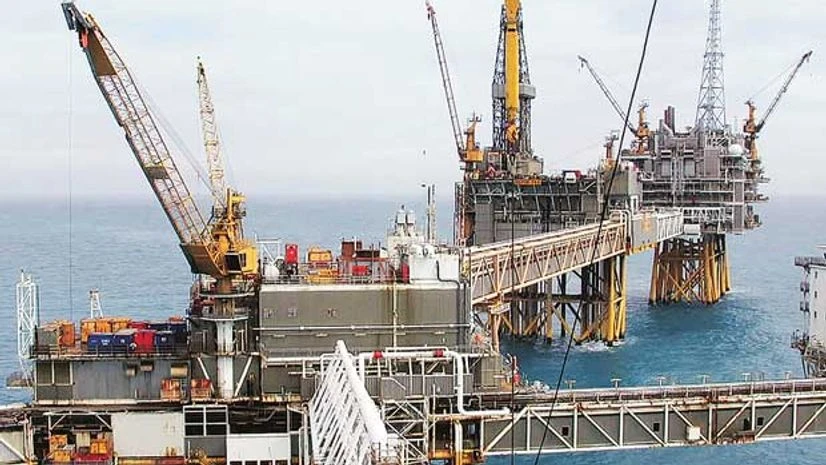Oil and gas industry body PetroFed, whose members include state-owned ONGC and private major Reliance Industries Ltd, has asked the government to allow natural gas pricing freedom to existing fields like KG-D6.
Responding to the Oil Ministry's consultation paper on new fiscal and contractual regime that allows pricing and marketing freedom for gas produced from fields awarded in future, it said a capped price equivalent to the imported cost should be allowed to existing fields as well.
"The existing Production Sharing Contract provisions regarding gas pricing should be followed in letter and spirit and the gas pricing should be determined on arm's length basis by competitive market forces," said the Petroleum Federation Of India (PetroFed).
The PSC for blocks like KG-D6 of RIL and KG-DWN-98/2 of ONGC provides for pricing of natural gas on arms-length basis through competitive bid route.
While the ministry has proposed for free gas pricing for future fields, the same is not been provided for existing fields like KG-D6 which continue to be governed by October 2014 pricing guidelines according to which rates currently are $4.24 per million British thermal unit.
The current price is widely considered inadequate for economically producing from existing discoveries. This price compares to $6-7 per mmBtu rate at which gas (LNG) is imported from spot or current market.
"Such pricing is reflective and responsive to demand- supply dynamics," PetroFed said, adding: "To put a cap on gas price it may be considered permissible up to the maximum of import parity price of LNG in the country."
PetroFed said providing the pricing and marketing freedom will "help build confidence of the investors on the future implementation" of the new policy.
"In addition to natural gas, there should be pricing and marketing freedom for all forms of hydrocarbons," it said.
The ministry had in November 2015 proposed to free natural gas pricing as well as give marketing freedom after replacing the controversial PSC with simpler revenue-sharing regime for all future field auctions.
In the consultation paper, the ministry had proposed a 'Uniform Licensing Policy' that will allow exploitation of all forms of hydrocarbons - conventional oil and gas as well as unconventional shale oil and gas and coal-bed methane (CBM) under one permit.
Oil and gas acreage in future is to be given to firms offering the highest share of profit to the government.
This model will replace the current practice of companies getting blocks by bidding the maximum work programme and then recovering all of their investment before sharing profits with the government. It was criticised by CAG, which said the model encouraged companies to keep raising cost so as to postpone higher share of profits to the government.
"The operator/consortium should have freedom in marketing of gas without any constraint. There should, therefore, not be any allocation of produced gas and if required, it should only be a percentage of the production," PetroFed said.
It said the concerns of the existing operators/consortia should be addressed on priority to set an example for the proposed bidders who will judge future policies on the basis of existing programmes.
International players like BP and private operators including RIL as well as state-owned Oil and Natural Gas Corp (ONGC) have been seeking pricing freedom as the current rates make new investments unviable.
All the three are members of PetroFed.
"The cost of offshore transportation of gas from well head to shore location for shallow/deep offshore blocks and other costs towards processing to meet customer specification should be rationalized and added to the cost of gas," it said.

)
